It seems like wherever you look, people have written 2016 off as a terrible year. But thanks to you, we’ve found a lot to be positive about, too.
This year, you helped us free more than 650 people – that’s nearly two each day – from unfair and often abusive imprisonment. Together, we helped change laws in 40 countries. We brought football’s global governing body to account, and helped convict war criminals. And in a year of so many uncertainties we found one thing we could be certain about: Outrage is not enough. Change happens when we take action together.
Here are 33 ways you helped change lives this year in every region of the world.
Outrage is not enough. Change happens when we take action together.
Amnesty International
“Thank you very much each and every one of you, not just for campaigning for my release, but for helping to keep our hope and our beliefs alive.”
– Phyoe Phyoe Aung (pictured far right), Myanmar, September 2016
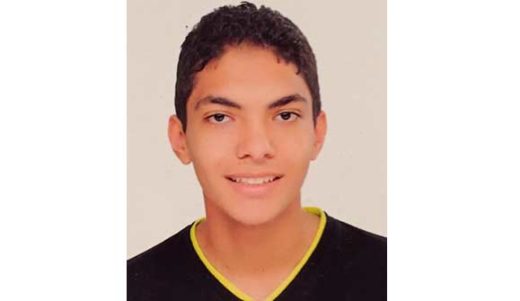
Your actions helped release more than 650 people, including…
1. Albert Woodfox, USA
Finally released in February – having spent 43 years and 10 months in solitary confinement in a Louisiana state prison. “I can’t emphasise enough how important getting letters from people around the world is,” said Albert. “It gave me a sense of worth. It gave me strength – convinced me that what I was doing was right.” Hundreds of thousands of supporters called for his release as part of Write for Rights.
2. Mazen Mohamed Abdallah, Egypt
Freed from detention in February. The 14-year-old boy had been raped by security officers bent on extracting a confession. Amnesty was the first to break the story, sparking broad media coverage that embarrassed the Egyptian government and prompted them to free Mazen. “There are no words that could be said to express my gratitude and thanks to Amnesty International for getting my son back to me,” said Mazen’s mother.
3
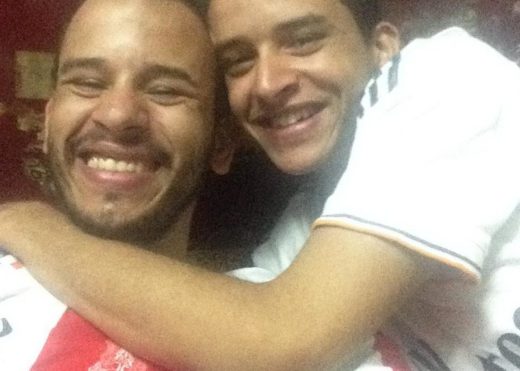
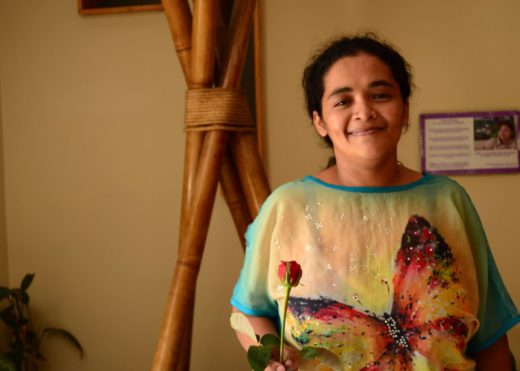
4. Mahmoud Hussein, Egypt
Released in March. The 20-year-old student spent more than two years detained without trial after being arrested at the age of 18 in 2014 for wearing a “Nation Without Torture” T-shirt.“I am so grateful to you, the Amnesty activists, who launched campaigns to support me,” said Mahmoud Hussein. “That gave me such hope and I felt really supported, as even though I was locked away from people, in a graveyard for the living, I was still alive in other people’s minds.” 145,000 people took action for his release worldwide as part of our Stop Torture campaign.
5. Phyoe Phyoe Aung, Myanmar
Walked free in April. Amnesty supporters across the world wrote more than 394,000 letters, emails, tweets and more for her as part of Write for Rights. She was released along with scores of student protesters. “Thank you very much each and every one of you,” she wrote in a recent letter to supporters. “Not just for campaigning for my release, but for helping to keep our hope and our beliefs alive.”
6. Maria Teresa Rivera, El Salvador
Freed in May. The 33-year-old had been sentenced to 40 years in prison in 2011 after suffering a miscarriage. Thousands of Amnesty activists around the world wrote letters on her behalf, urging El Salvador to stop criminalizingabortion. “I am very grateful to every man and woman who has been following my case with that lighted candle and who hoped that I would be free,” she wrote later.
7. José Marcos Mavungo, Angola
Released in May. He had been convicted in September for ‘rebellion’ for his part in organizing a peaceful demonstration.
Feeling better about 2016?
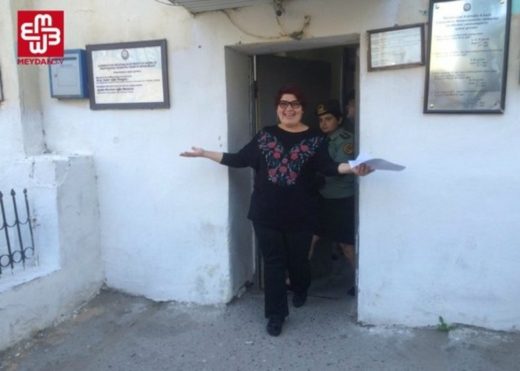

8. Khadija Ismayilova, Azerbaijan
Released in May. The Supreme Court replaced the award-winning journalist’s seven-and-a-half-year prison sentence with a suspended three-year sentence following an appeal. Earlier in March, 11 others, including prominent journalists, were released following two years of extensive lobbying and campaigning supported by you.
9. Yecenia Armenta, Mexico
Freed from prison in June. Detained on 10 July 2012, she was beaten, near-asphyxiated and raped during 15 hours of torture until she was forced to “confess” to being involved in her husband’s murder. Amnesty supporters took some 300,000 actions for her as part of our Stop Torture and Write for Rights campaigns. “When I receive all these letters saying that I’m not alone,” she said, “it makes me feel great. And I think: ‘Yes, it’s true, I’m not alone.”
10. 17 Angolan youth activists, Angola
Conditionally released at the end of July, following sustained and intense campaigning for their freedom. Among them was Sedrick de Carvalho who had been arrested for participating in a reading group where young people discussed ideas about democracy and freedom. “I would like to thank Amnesty International,” he later said, “Because of your support, we are no longer in prison.”
11. Ildefonso Zamora Baldomero, Mexico
Released on 12 August. The environmental activist and prisoner of conscience had been unfairly imprisoned for nine months. “My sincere thanks to everyone at Amnesty International around the world,” said Ildefonso. “I don’t have enough words to tell you that I thank you endlessly.”

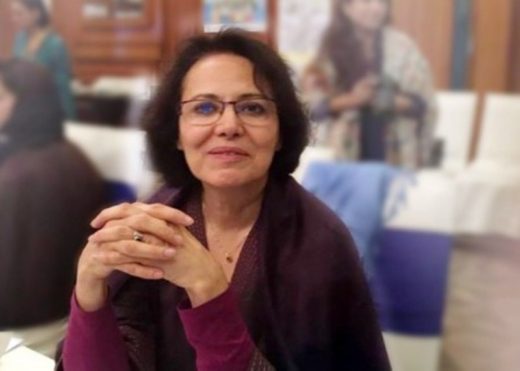
12. Belén, Argentina
Released from pre-trial detention in August. More than 120,000 people across the globe signed our petition to local authorities in July, calling for her release. The 27-year-old had been sentenced to eight years in prison after having a miscarriage. A final decision on her sentence is still outstanding.
13. Fred Bauma & Yves Makwamba, DRC
Were released at the end of August. An amazing 170,000 people took action for the two youth activists from the Democratic Republic of Congo as part of Write for Rights. “Every letter, every visit, every word has strengthened us and reinforced our determination in this long but just struggle for freedom and democracy,” said Yves. Ten of their fellow activists, all members of the LUCHA youth movement, were also released in 2016.
14. Homa Hoodfar, Iran/Canada
Released in September. The Canadian-Iranian citizen is a professor of anthropology and women’s rights campaigner. Tens of thousands of people in Canada and beyond signed a petition calling for her freedom.
15. 31 peaceful protestors, Gambia
Released on bail in December. Among them was the opposition leader Ousainou Darboe. Amnesty lobbied hard for their release, also calling on our supporters to show their solidarity with them.
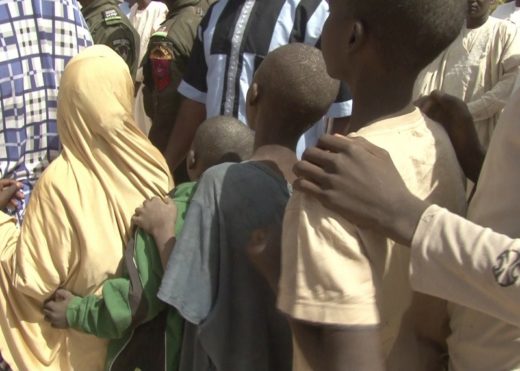
Your support helped us make groundbreaking exposés that transformed lives
16. Iraq: 293 people freed from abusive detention
In May, we gained rare access to a makeshift holding centre in Anbar, west of Baghdad in Iraq. There, we found some 700 people, some as young as 15, held without charge in horrendous conditions because they were suspected of having links to Islamic State (IS). We swiftly publicised our findings, gaining widespread media coverage. This, coupled with a vital meeting with the Prime Minister of Iraq, resulted in the release of 293 people.
17. Nigeria: 100 people removed from horrific conditions
On 11 May, we exposed the deaths of more than 149 people in a Nigerian military holding facility during 2016. Their deaths were likely caused by starvation, dehydration and disease. Among the dead were 11 babies and children under the age of six. While the Nigerian military publicly denied the findings, approximately 100 detainees were released from the barracks immediately following publication of our report.

You helped us challenge sports governing bodies and bring war criminals to justice
18. World football authority bows to pressure
In March we exposed the exploitation of migrant workers building a stadium for the 2022 World Cup football site in Qatar. Amnesty supporter actions, combined with our investigation, provoked reactions from the Qatar authorities, construction companies and FIFA (football’s global governing body). Two companies returned passports to workers. One company at the centre of the allegations was suspended for World Cup projects for six months. The International Association of Athletics Federations (which will use Qatar sports facilities for its World Championship in 2019), although not even a target of the report, said it would look at the issues we raised. FIFA said it would set up an independent committee to monitor conditions at 2022 World Cup venues.
19. Chad war criminal convicted
In a landmark ruling for international justice, former president Hissène Habré was sentenced to life on 30 May for crimes against humanity, war crimes and torture committed in Chad between 1982 and 1990. Among other evidence, the prosecution relied on Amnesty reports dating from the 1980s, as well as the expert testimony of a former Amnesty staff member.
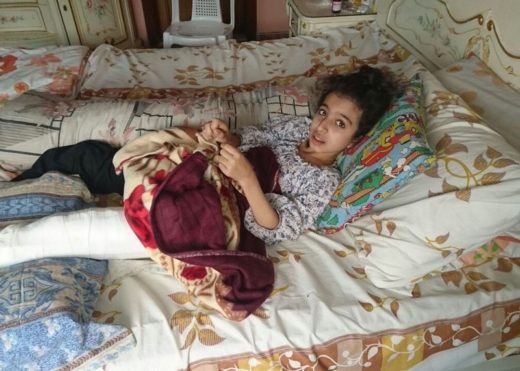
You helped save lives
20. Iranian teen spared execution
Alireza Tajiki was saved from the gallows thanks to a global outcry condemning his imminent execution. He was scheduled to hang on 15 May 2016, but with Amnesty staff lobbying hard and activists tweeting the authorities to #SaveAlireza, the execution was called off. Alireza is not safe yet – we are now calling on Iran to quash his death sentence.
21. Executions averted in Maldives and Indonesia
Your continued support to end the death penalty worldwide yielded positive results in Maldives and Indonesia. In July, you helped us stop – at least temporarily – the planned resumption of executions in Maldives after more than 60 years. Amnesty supporters campaigned hard to stop the execution of 14 people in Indonesia convicted of drug offences after unfair trials. On 29 July, although four of the group were put to death, the other 10 were given stays of execution, with the authorities promising “a comprehensive study” of their cases. The campaign to save them continues.
22. 10-year-old Syrian girl gets life-saving surgery
Following international pressure from Amnesty supporters and others, a seriously wounded 10-year-old Syrian girl was successfully evacuated from the town of Madaya on 13 August for urgent surgery. Ghina Ahmad Wadi had been shot in the leg by sniper fire from a Syrian government forces checkpoint when going to buy medicine for her mother.


Your support helped change laws in 40 countries
23. Burkina Faso tackles early and forced marriage
Thanks to your action, the government of Burkina Faso pledged in February to eradicate early and forced marriage. It committed to raising the legal age of marriage for girls to 18 years and to making sure that forced marriage is clearly defined in the law books. More than half a million of you signed our petition as part of My Body My Rights and Write for Rights – a fact that did not go unnoticed by the authorities.
24. Malawi: new law protects people with albinism
More than 225,000 people signed our petition calling on Malawi’s authorities to stop the killing of people with albinism. Thanks to this global pressure, Malawi changed two laws in September that help protect people with albinism from violence and murder. Today, anyone caught with the bones or body parts of a person with albinism faces life in jail.
25. Progress on curbing torture
Your efforts to stop torture led to several countries taking progressive steps to end this practice. Guinea made torture a crime, while Togo strengthened its law to bring it in line with international law. Following years of campaigning by Amnesty supporters, Canada finally pledged to prevent torture by committing to ratify the Optional Protocol to the Convention against Torture (OPCAT). And a historic ruling on police torture in the Philippines – which saw the first conviction under the country’s 2009 anti-torture law – followed three years of steadfast campaigning by Amnesty activists.


26. Step forward for Indigenous Rights in Canada
In August, Canada launched a national, independent inquiry into missing and murdered Indigenous women and girls. The decision followed more than a decade of campaigning by Amnesty supporters, Indigenous women’s groups and others in Canada.
27. New law for the disappeared in Peru
Thousands of people searching for their disappeared loved ones may finally discover what happened to them thanks to a new law. Introduced in June, the law followed sustained campaigning by Amnesty supporters in Peru for those who were abducted or went missing at the hands of state forces or armed groups during the 1980-2000 armed conflict.
28. Progress for Indigenous People’s rights in Australia
History was made following concerted campaigning and the release of our report on Indigenous youth justice in Queensland, Australia. After five decades of injustice, 17-year-olds will no longer be held in adult prison or tried as adults, in line with international law. This means that children, and particularly Indigenous children who are 22 times more likely to be in detention, will have more chance at rehabilitation.
29. Norway and Denmark: Historic breakthrough for transgender rights
In June, Norway passed a new law that gives transgender people access to legal gender recognition through a quick, accessible and transparent procedure. Crucially, it allows individuals to self-determine their gender and do away with Norway’s shameful legacy of compulsory requirements that are discriminatory and violate a range of human rights. In May, Denmark’s parliament adopted a decision to stop classifying transgender identities as mental disorders.

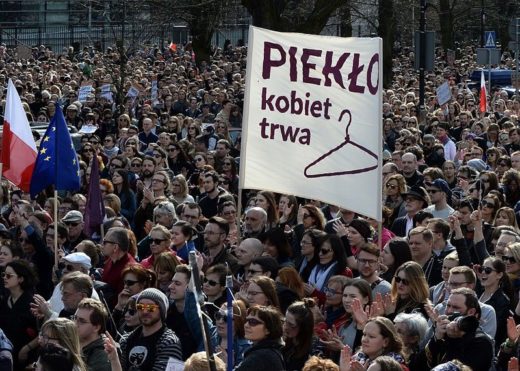
30. Saudi Arabia: Cluster bombs on hold
People around the world joined our campaign to highlight the devastating impact of UK, US and Brazil-made cluster munitions by the Saudi Arabia-led coalition in Yemen. The USA has since placed a hold on the transfer of cluster bombs to Saudi Arabia. In December, Saudi Arabia said it would stop using UK-made cluster bombs. We continue to call on them to ban the use of all cluster bombs completely.
31. More countries abolish the death penalty
The global push towards the abolition of the death penalty continued to gather momentum. On 12 May Nauru became the 103rd country to abolish the death penalty for all crimes. And in October, Guinea enacted a law abolishing the death penalty for most crimes.
32. Torture trade loophole closed
Years of campaigning by Amnesty supporters and the Omega Research Foundation led the European Union to introduce tighter restrictions in October on the sale and promotion of equipment used to torture or execute people. The restrictions are legally binding on all EU member states.
33. Poland – women force U-turn on proposed abortion ban
Women and girls flooded the streets in unprecedented numbers in October to protest against a proposed ban on Poland’s already highly restrictive abortion law. Women went on strike to show their collective fury at the proposals, and thousands of people, including Amnesty supporters, sent through messages of solidarity. Ultimately, the government backed down – a historic victory for women’s rights in the country.
Text: Shiromi Pinto
Feeling better about 2016? Help us do the same for 2017. Act now to free Shawkan
Photojournalist Shawkan has endured more than 1000 days in jail just for doing his job
Mahmoud Abu Zeid, better known as Shawkan, was only doing his job. A photojournalist, he was covering a sit-in on 14 August 2013 in Cairo, when security forces swept in.
“It was like a Hollywood movie,” he wrote later. “There were bullets, tear gas, fire, police, soldiers and tanks everywhere.”
Shawkan used his camera to capture the mayhem around him. Police and soldiers had been deployed across the country to stamp out dissent where they found it. It was the bloodiest incident in Egypt’s recent history, claiming some 1,000 lives in one day.
When police found out Shawkan was a journalist, they arrested him. They punched him and whipped him with a belt. Today he is held in Cairo’s notorious Tora Prison, and although he has Hepatitis C, he isn’t getting the medical care he needs.
It’s been three years since Shawkan was jailed. In a recent court hearing he told the judge: “Taking pictures isn’t a crime.” He’s right.
Sign our petition to the Public Prosecutor of Egypt:
I urge you to release Mahmoud Abu Zeid, better known as Shawkan, immediately and unconditionally with all charges against him dropped. He is a prisoner of conscience, detained solely for his journalistic work.
A photojournalist, he was covering the Rabaa al-Adaweya sit-in on 14 August 2013 in Cairo, when security forces swept in. More than 700 people were killed in that sit-in alone. Up to 1,000 people were killed across the country as police and army officers were deployed to disperse protests nationally.
When police found out Shawkan was a journalist, they arrested him. He has been in detention for more than three years facing trumped-up charges and receiving inadequate health care. Please release him without delay.

